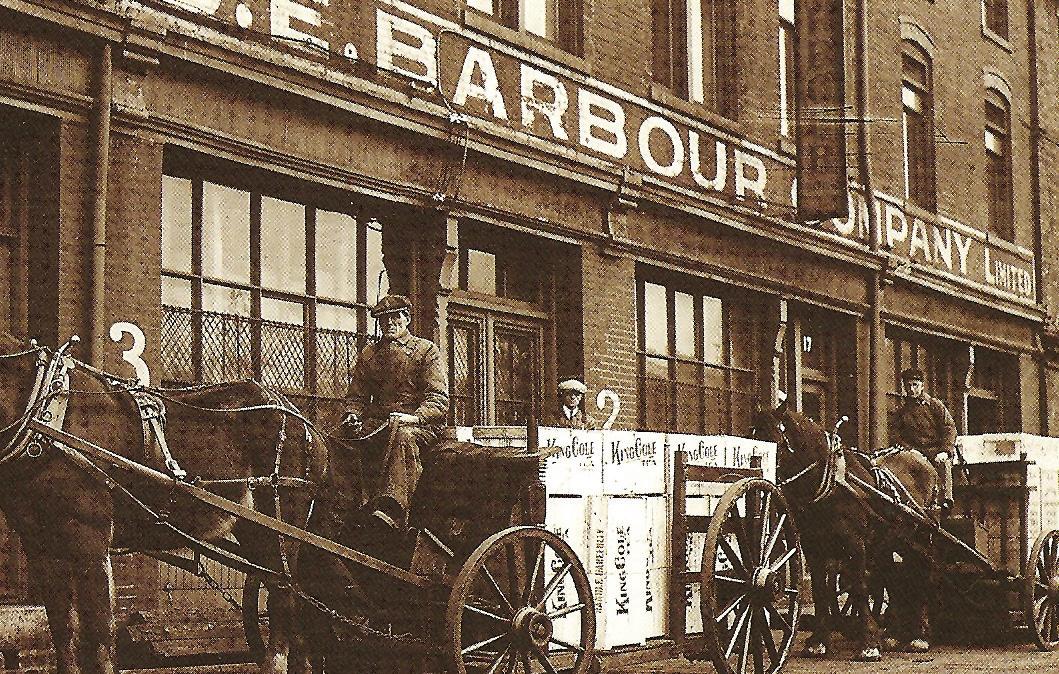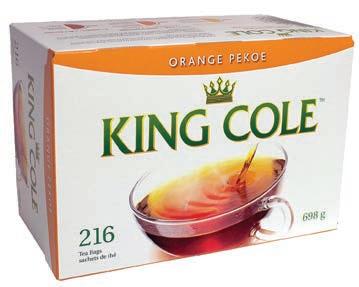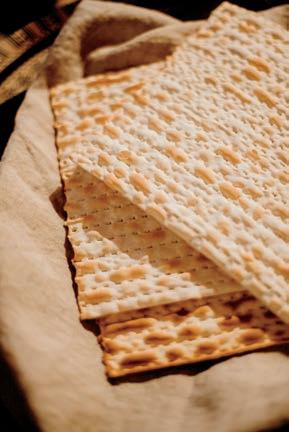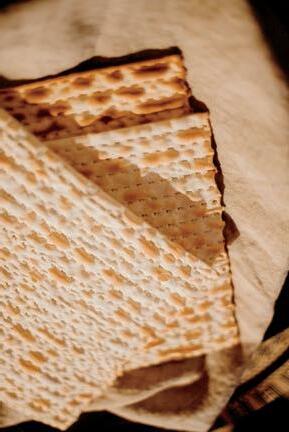
5 minute read
G.E. Barbour Not just a company, an extended family
FAMILY-OWNED BUSINESS
G.E. BARBOUR MAKES SOME OF THE BEST PRODUCTS THE MARITIMES HAS TO OFFER.
Advertisement
According to Rabbi Yitzchok Yagod, rabbi of the flourishing community of Moncton, NB, and one of COR’s main mashgichim in the Maritimes, doing an inspection of G.E. Barbour in Sussex entails one of his shorter drives from his home but by far his longest walk.
“At most factories, it takes about 10 minutes to walk the production line if you don’t count the actual inspection,” he says. “Barbour takes about 25 minutes.”
The reason, of course, is that the company’s output is varied.
“G.E Barbour is a multi-product manufacturing facility,” says Gordonna Hache, the Technical Sales and Marketing Manager of G.E. Barbour. “We produce teas, nut butters, extracts, popcorn seasoning, and spices.”
They produce these products for both third-party private label companies as well as under their own label –particularly Barbours products and King Cole Tea, the latter of which is their most well-known product as the #1 tea in Atlantic Canada.
“We have a long history of tea here in Atlantic Canada,” she continues, “and the brand [King Cole] has been around since 1910. The fact that it is locally made makes a difference to people, and also the flavour has remained the same from cup to cup.”
The company itself was incorporated over 150 years ago, in 1867, by two brothers
- George and William Barbour - as a wholesale grocery business in St. John.
“George Barbour had experience in the grocery business,” Hache says, “having worked for Turnbull & Company, which was a large wholesaler at the time. The original company was called Barbour Brothers, and through many changes, including the loss of the building and assets in the Saint John Fire of 1877, the company evolved into what it is today.”

The company moved to its current location in Sussex in 1967, and currently employs approximately 100 people.
“We are a family-owned business and have been from the beginning,” she says. “Our current owner, Sylvia MacVey, is the granddaughter of Ralph Brenan, who purchased the company from the Barbour family in 1952.”
The company reached out to COR in 1990 about certifying its products, and has been certified ever since.
“The decision to become kosher certified was customer-driven,” Gordonna says. In other words, some of the private label companies for which they make products requested that those products be certified, so they could get into more markets.
“The private labels specifically look for manufacturers with kosher certification,” says Rabbi Yagod.
“They are very non-typical supervision,” says Rabbi Yagod who has been visiting the facility for 12 years. “Most of the companies I supervise manufacture a family of similar products -- either drinks, snacks, dairy products, fish, spices, etc. But this company does many unrelated things, so it’s like four factories in one. There are multiple production floors. It’s long and spread out, with several completely different areas. So when I’m there, I do a lot of power walking, and they all know about it. They joke around with each other about who’s gonna get a chance to power walk with the rabbi.”
“It is really one of my best supervisions,” says Rabbi Yagod. The tea factory, which is the most famous part of the operation, has its own area, and I consider it the easy part of the factory, because 1) It doesn’t change very often, and 2) Tea typically has very few kosher challenges.
“Above all, the factory’s culture is very respectful to any rabbis who come. When I arrive for my inspection visit, the plant employees stop what they are doing; their first priority is whatever the rabbi wants to see, and they don’t consider it an interruption. This attitude comes straight from Mrs. MacVey, the director of the factory. From top down, she insists that everyone show a very dignified and old-fashioned respect toward any kosher certification rabbi who comes for anything.”
“My contact person,” he says, “is Jeff Preston -- a tall fellow with a wicked sense of humour who loves the power walk. He’s in charge of quality control, so he’s the manager who usually takes me around for the kosher inspection. He almost always knows every question I ask him, and if he ever has to look something up, he knows how to find the answer right away.”
“That’s the tea floor,” he says. “The nut butter, however, is a whole different story. It’s a separate area – in fact, there are two separate areas: nut processing and nut storage – and for each area, because of allergy constraints, we have to put on special robes and take off the old ones, and there’s a sanitizing process before we get in and after we get out. Unlike most facilities where I just put on a robe and a beard net and footwear once, here I have to do it multiple times.”
“It can make you go a little nuts,” he jokes. “And because I’m a triple extralarge, I often have an issue finding a robe that’s big enough to fit me.”
“That said,” he says, “I do credit the plant for being very careful about allergens – I actually have a child with allergies – and from a kashrus perspective, the nut area is excellent too -- always on the up and up, never a problem.”

“One interesting thing about the company,” he says, “is that there’s a comeraderie that you wouldn’t find in a corporate-owned business. If one person isn’t there for a few minutes to take the rabbi around, everyone knows what to do, and they don’t keep him waiting. If someone is out on leave, someone else will fill in without complaining. There’s a certain small-town atmosphere and way of doing things.”
“Our company is a family company,” Hache agrees. “Sylvia knows all her employees and something about everyone’s family and is interested in what’s going on with them. Family always comes first. Sylvia has always had an open-door policy.”
The company only has nice things to say about COR as well.

“We have a good working relationship with COR,” Hache says, “and they provide great support. If we have questions, they are always quick and efficient to answer.”
What kind of support are we talking about? Rabbi Yagod elaborates:
“If let’s say a supplier sends them something different than what they’re expecting, they will ask the rabbis, and we’ll immediately tell them what to do. Or if they can’t get a supply that they need because supply chain issues are challenging now, we work on getting them an answer quickly. Time is money.
“I want to pay special tribute to Rabbi Dovid Rosen,” Rabbi Yagod says. “I’m the point person for many things, but I’m out on the road, away from everything. The person who can make the biggest difference when something comes up is the administrator for industrial kosher. Rabbi Rosen is always 100% right there for anything. He knows what the mashgiach is seeing, understands the mashgiach, and gives everything that is needed. He has made my job so much more efficient. That’s probably why G.E. Barbour likes the COR. It makes me look good, but in reality, it’s really Rabbi Rosen who’s doing most of it.”
When asked what has most contributed to the longevity of the company, Gordonna attributes it most to the products and the company’s employees. “Our products are tried and tested in the marketplace,” she says, “and people appreciate that they can purchase something that is made here, in Canada. The other part is the people who we have working for G. E. Barbour. They are dedicated, hardworking, and long-time employees.”
“The product really tastes better than the average,” Rabbi Yagod notes, “because it’s not corporate. Instead of meeting the stock owners’ expectations, they really put their hearts into what they’re doing. Each part of the company has people who are experts in that area -- and maybe not the other areas, as they’re very compartmentalized. The fellow who sees the nuts can tell if the latest load delivered is what it needs to be. The fellow who sees the tea can smell and feel in a second whether this shipment will turn out as well as usual. They take responsibility for whatever they are doing. That’s what I mean by “old fashioned”; they operate like it’s their own home. If they wouldn’t serve it in their house, they wouldn’t sell it. They’re not factory workers, they’re craftsmen. They feel very connected to what they’re making.” g
















